Senior Forestry Manager Hypes Family Forest Carbon Program in Minnesota
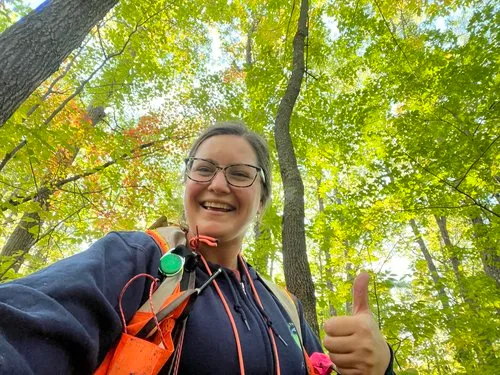
Enjoying a visit to Crow Wing Co., no bugs! Chrissy Shaw, Family Forest Carbon Program senior forestry manager for Wisconsin and Minnesota.
Senior Forestry Manager Chrissy Shaw recently shared her thoughts with the Minnesota Women's Woodland Network on the many benefits of participating in the Family Forest Carbon Program. This story, included in its entirety below, was originally published on the Minnesota Women's Woodland Network blog on February 6, 2023.
By participating, landowners commit to implementing forest management practices designed to take a little bit less of the forest to leave a little bit more. In return, landowners receive annual financial compensation for their 20-year commitment. However, there is much more to gain by participating than just financials.
Minnesota’s Family Forests Getting a Boost with AFF’s Family Forest Carbon Program
By Chrissy Shaw, FFCP Senior Forestry Manager for Wisconsin and Minnesota
My family owns a cabin near Backus, Minnesota. Every June, we load the car and head up north for a week of non-stop fishing. The fishing is always good, but the cabin is truly an experience. We are always graced with the sounds of the loon, a swooping bald eagle that lands in a towering white pine hanging over the lake, a beaver that announces we are too close to the den, and if we are lucky, we see some curious fox kits roaming about. It all seems majestic, and the trip is inevitably nothing short of rejuvenating.
Working for the American Forest Foundation as the senior forestry manager of their Family Forest Carbon Program in Minnesota, I have been afforded more trips to this beautiful state. During my visits with landowners here, I have admired how passionate Minnesotans are about owning their woods. I can tell that many take great pride in caring for the land. I have heard lots of stories about the history of the land, how the family came to own it, and their plans to pass it on to the next generation for memory-making of their own. I have also heard about the challenges of maintaining that ownership from generation to generation, as the cost of ownership continues to rise.
With climate change on the horizon, there are many more difficulties that the future may hold for us. Forests, and the trees within them are not exempt. They could see major consequences with many scientists believing we could see increased tree regeneration failure, increased insect and disease attacks, shifts in native and invasive plant ranges, and altered growth rates that could all come along with the changes to temperature and precipitation patterns in our future. These consequences could be severe for an ecosystem that simply cannot get up and move if the conditions are not suited for it.
Luckily, the American Forest Foundation and The Nature Conservancy have been working hard to bring a program that would provide some relief to our forests in the face of climate change, along with providing additional income to help finance sustainable forest management goals for Minnesotans’ forests.
The Family Forest Carbon Program is a unique incentive program for private landowners who own at least 30 forested acres and desire to have positive impacts on the climate, while still allowing the opportunity to actively manage their lands through timber sale harvesting. By participating, landowners commit to implementing forest management practices designed to take a little bit less of the forest to leave a little bit more. In return, landowners receive annual financial compensation for their 20-year commitment. However, there is much more to gain by participating than just financials.
The practices will create more shelter from additional tree canopies to help tree seedlings thrive in warmer conditions where precipitation patterns are uncertain and temperatures soar. They can improve water quality by preventing erosion and runoff events that can come after timber harvests by leaving more forest canopy present and on larger scales than traditional timber sales. They increase the value of wildlife habitat by leaving larger patches of intact forest on the landscape and yet can still create habitat for species that thrive in younger forests like golden-winged warbler, ruffed grouse, and woodcock. With older forests and younger forests co-existing on your property, our practices have the potential to create a beautiful and diverse dichotomy on your land. Last, but certainly not least, is that they help improve the quality of the air we breathe by sequestering and storing more carbon dioxide from the atmosphere in your forest when compared to the surrounding landscape.
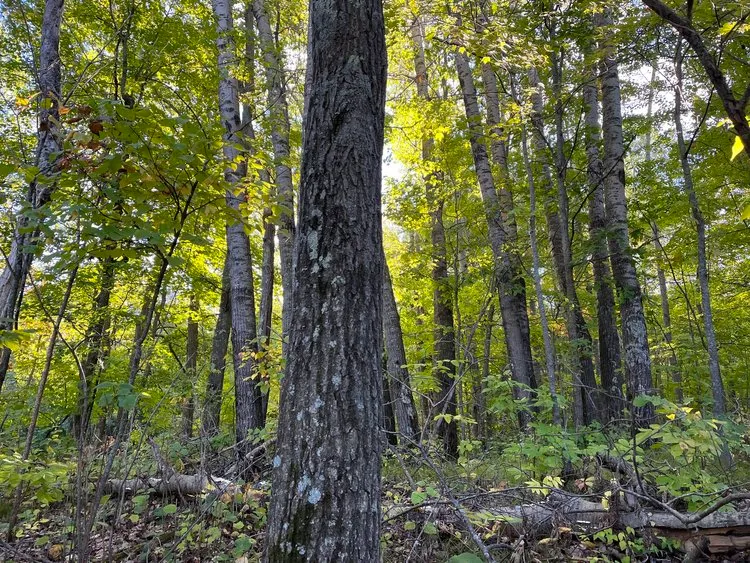
FFCP practices are developed for specific timber types, like the aspen/birch timber type seen above.
There are many more facets to the Family Forest Carbon Program and what it can do for you, including where the program is open in Minnesota, payments for following FFCP practices in return for your 20-year commitment, and what eligibility and our FFCP practices look like. To get started, you can head over to our Family Forest Carbon Program website and check out our Practice Overview document for Minnesota. If your goals align with FFCP’s to bring a brighter future to Minnesota, please stay tuned for a webinar announcement on the Minnesota Women’s Woodland Network website to learn more about the Family Forest Carbon Program. I hope to see you there!
Related Articles
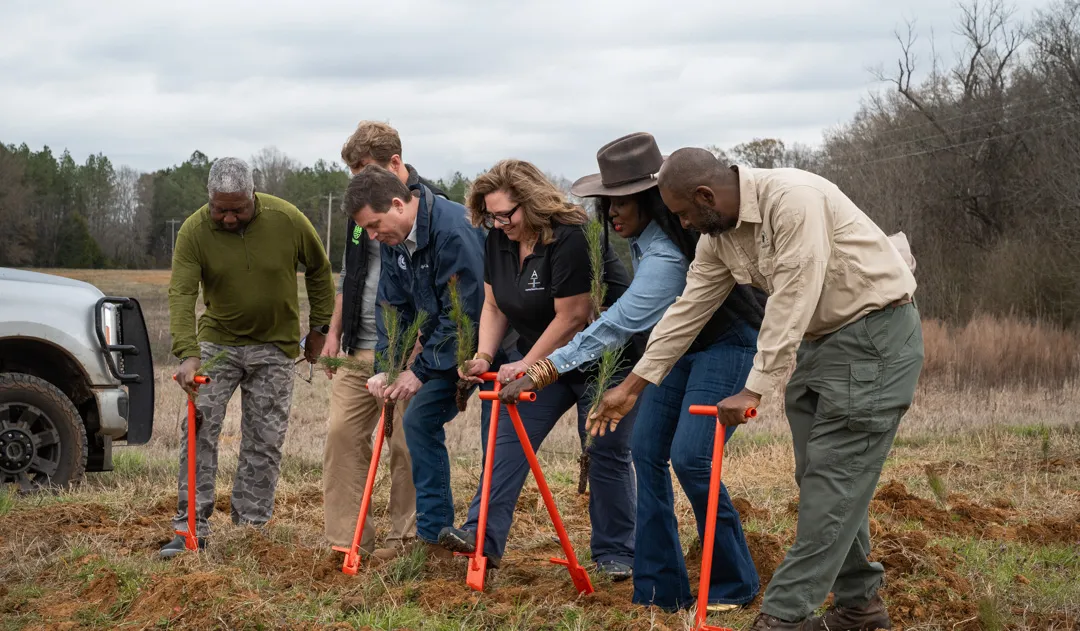
February 12, 2026
Fields & Forests Plants its Millionth Tree
AFF celebrated the millionth planting on recently enrolled landowner Portia Fulford’s property near Montgomery, Alabama. AFF was joined by several key partners, including the Arbor Day Foundation, the Alabama Forestry Commission, the Alabama Forestry Association, Help for Landowners, and Funga.
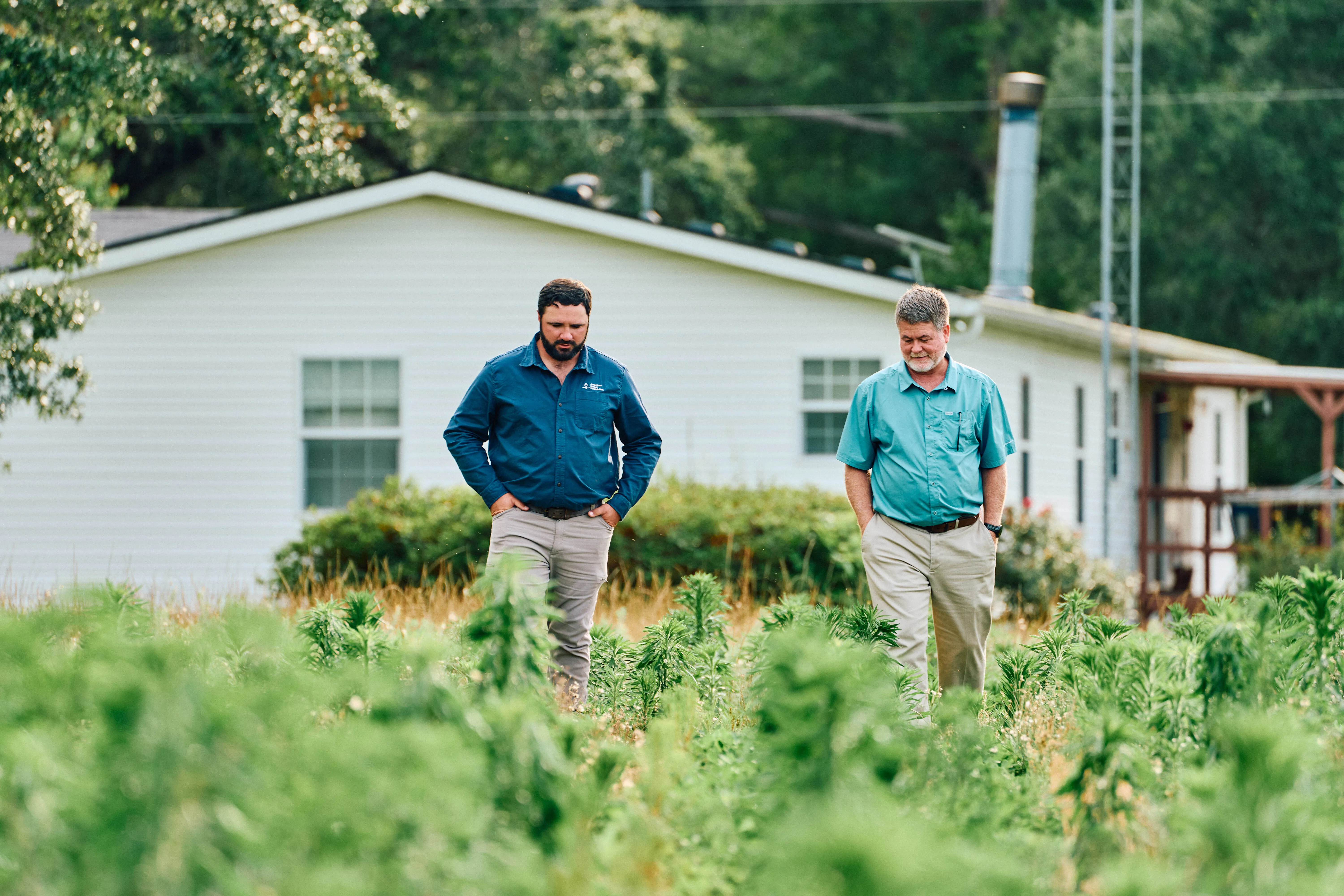
February 11, 2026
Building Momentum & Impact: A Look Back at 2025
As we look back on 2025, one thing is clear: the Family Forest Carbon Program community continues to grow in both scale and impact. From enrolling new landowners to delivering verified carbon credits and expanding landowner support, this past year brought significant milestones for family-owned forests across the country.
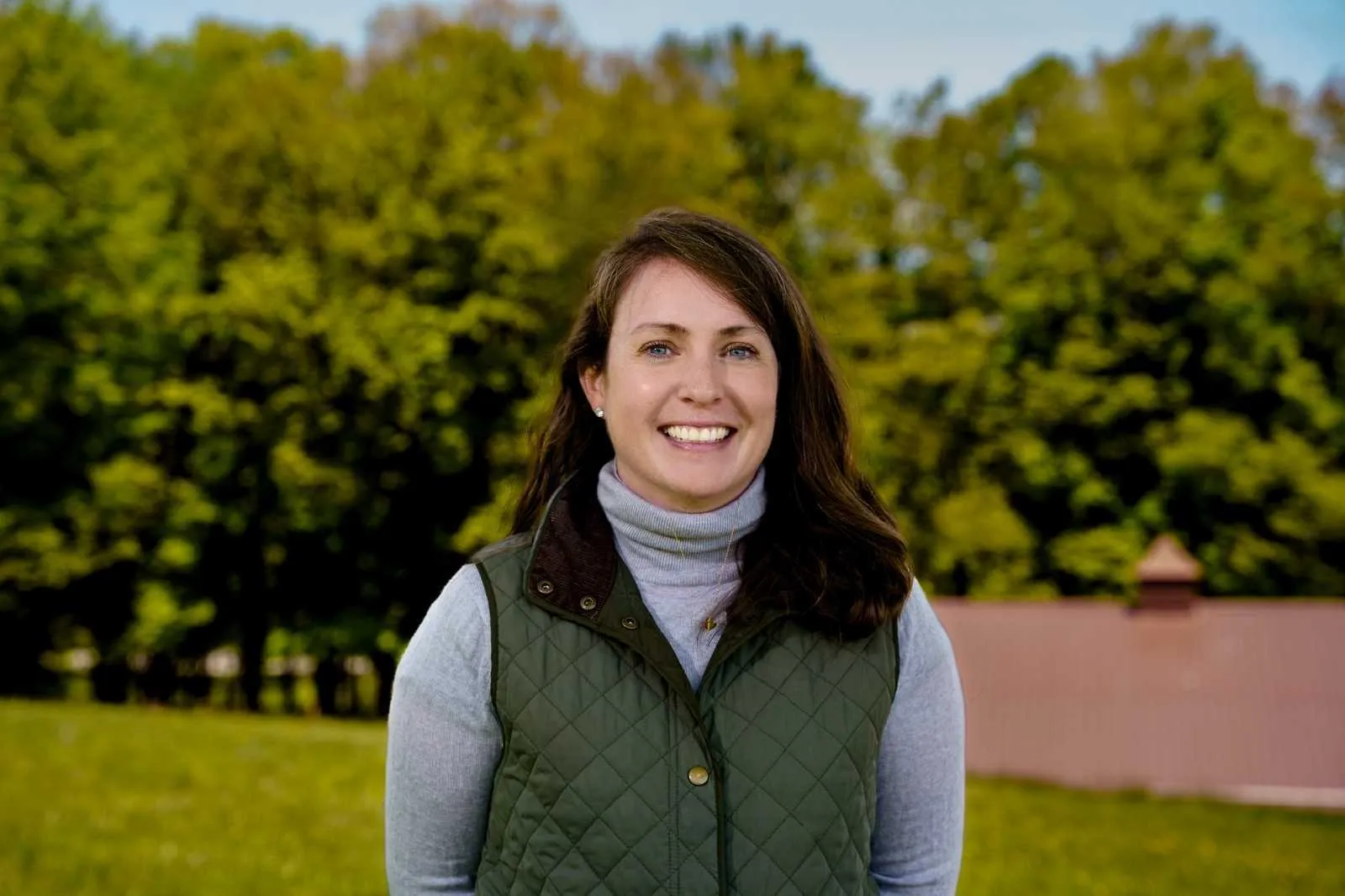
February 3, 2026
Reflecting on 2025 and Looking Ahead
Happy New Year from the Family Forest Carbon Program team! It’s been a tumultuous year, to say the least, so I hope you’ve all been able to find some peace, prosperity and perspective enjoying your farms, fields, and forests with your families. As I reflect on our community, it’s clear we have so much to be grateful for.